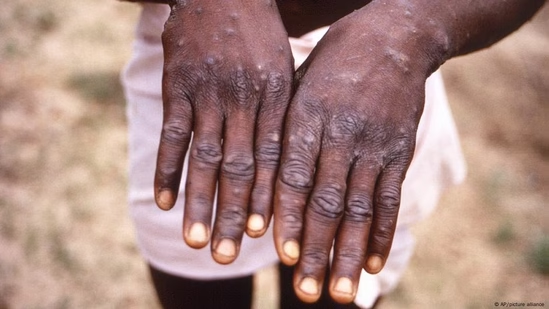The Association of Resident Doctors, University of Ilorin Teaching Hospital (ARD-UITH), has warned Nigerians against consumption of undercooked bush meat, to stem contact with the deadly mpox virus.
The union President, Dr Yusuf Muhammed, disclosed this on Monday in Ilorin, urging the people to also avoid contact with dead animals.
Muhammed explained that mpox is a zoonotic infection that affects animals and can be transferred to humans.
“Mpox is not entirely new, but at some points new strains commonly appear, and in recent times, the World Health Organization (WHO) has sent warning that the strain that is currently detected is a new one.
- NIGERIA DAILY: How To Prevent Mpox From Spreading
- Over 18,700 mpox cases detected in Africa since January – AU
“The fear is that the antibody that humans have may not be able to protect against it like the strain that occurred before. This poses a significant threat to people and everybody should be on the lookout,” he said.
The ARD-UITH president described mpox as a viral disease related to the now-eradicated smallpox virus.
According to him, initial symptoms are typically flu-like; including fever, chills, exhaustion, headache and muscle weakness, often followed by a painful or itchy rash with raised lesions that scab over.
He however advised Nigerians not to panic, but to report suspected cases to the nearest health agencies where proper investigation and contact tracing can be done.
“The public should not panic, but report cases to health agencies for contact tracing and proper investigation, so that at-risk individuals can also be quarantined and prevention measures taken,” he said.
Similarly, Muhammed pointed out that the vaccine for smallpox appeared to also work for mpox, but he observed that “to what extent it will work on the new strain”, was unknown.
He assured that the association was fully ready to deploy all arsenal, responses and preparedness deployed during the Covid-19 pandemic to fight any eventual outbreak in the country.
“ARD from the national body and the UITH is observing the trends, preventive measures and advice from the scientific community, so that we appraise it and also contribute our quota to the body of knowledge.
“For now there are no clearly reported cases of the outbreak in Nigeria. As far as the Nigeria Centre for Disease Control (NCDC) is concerned, the WHO alerts all nations to be on the lookout for possible outbreak,”
he said.
The WHO has declared that the outbreak of mpox in parts of Africa as a public health emergency of international concern.
At least 450 people died during an initial outbreak in the Democratic Republic of Congo and the disease has since spread to areas of Central and East Africa, and Sweden.
The disease can spread through close contact such as touching, kissing or sex, as well as through contaminated materials like sheets, clothing and needles, according to the WHO.

 Join Daily Trust WhatsApp Community For Quick Access To News and Happenings Around You.
Join Daily Trust WhatsApp Community For Quick Access To News and Happenings Around You.


